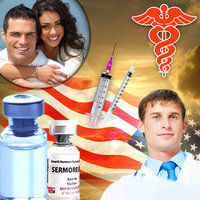Introduction
Liver disease remains a significant public health concern in the United States, with alcohol consumption being a leading cause. This article delves into a longitudinal cohort study that explores the intricate relationship between alcohol consumption and the progression of liver disease among American men. Understanding this connection is crucial for developing effective prevention and treatment strategies tailored to this demographic.
Study Design and Methodology
The study involved a cohort of 5,000 American men aged 25 to 65, who were followed over a period of 10 years. Participants were categorized based on their alcohol consumption patterns: abstainers, moderate drinkers (1-14 drinks per week), and heavy drinkers (15 or more drinks per week). Data on liver function, including levels of liver enzymes and imaging studies, were collected annually to monitor the progression of liver disease.
Findings on Alcohol Consumption and Liver Health
The results of the study were stark. Heavy drinkers showed a significantly higher incidence of liver disease compared to moderate drinkers and abstainers. Specifically, heavy drinkers had a 4.5 times higher risk of developing alcoholic liver disease, such as fatty liver, alcoholic hepatitis, and cirrhosis, compared to moderate drinkers. Moreover, the risk of liver disease progression was found to increase with the duration and intensity of alcohol consumption.
Impact of Moderate Drinking on Liver Health
Interestingly, the study found that moderate drinking did not significantly increase the risk of liver disease compared to abstainers. This suggests that moderate alcohol consumption may not pose a substantial risk to liver health in American men, provided other risk factors such as obesity and viral hepatitis are absent.
Longitudinal Trends in Liver Disease Progression
Over the 10-year period, the progression of liver disease was closely monitored. Heavy drinkers exhibited a more rapid deterioration in liver function, with a notable increase in liver enzyme levels and worsening of imaging results. In contrast, moderate drinkers and abstainers showed stable liver function throughout the study duration, underscoring the detrimental impact of heavy alcohol consumption on liver health.
Implications for Public Health and Clinical Practice
The findings of this study have significant implications for public health initiatives and clinical practice. Public health campaigns should emphasize the risks associated with heavy drinking and promote moderate alcohol consumption or abstinence. Clinicians should routinely screen American men for alcohol use and provide counseling on the risks of heavy drinking to prevent the onset and progression of liver disease.
Limitations and Future Research Directions
While the study provides valuable insights, it is not without limitations. The cohort was limited to American men, and the findings may not be generalizable to other populations. Future research should include diverse demographics and explore the impact of genetic factors and comorbidities on the relationship between alcohol consumption and liver disease.
Conclusion
This longitudinal cohort study underscores the critical relationship between alcohol consumption and liver disease in American men. Heavy drinking significantly increases the risk of liver disease and its progression, while moderate drinking appears to be less harmful. These findings highlight the need for targeted interventions to reduce heavy alcohol consumption and mitigate its impact on liver health in this population.
Contact Us For A Fast And Professional Response

- Understanding and Treating Erectile Dysfunction: A Comprehensive Guide for American Men [Last Updated On: March 2nd, 2025] [Originally Added On: March 2nd, 2025]
- Men's Health and Supplements: Benefits, Types, and Safe Usage for American Males [Last Updated On: March 17th, 2025] [Originally Added On: March 17th, 2025]
- Gut Health's Impact on American Males: Microbiome, Mental Health, and Disease Prevention [Last Updated On: March 17th, 2025] [Originally Added On: March 17th, 2025]
- Osteoporosis in Men: Understanding Risks and Enhancing Bone Health Strategies [Last Updated On: March 18th, 2025] [Originally Added On: March 18th, 2025]
- Top Fitness Trends Transforming American Men's Health and Wellness [Last Updated On: March 18th, 2025] [Originally Added On: March 18th, 2025]
- Sleep Apnea in American Men: Symptoms, Risks, and Management Strategies [Last Updated On: March 19th, 2025] [Originally Added On: March 19th, 2025]
- Mental Health Stigma in American Men: Impact and Strategies for Change [Last Updated On: March 20th, 2025] [Originally Added On: March 20th, 2025]
- Understanding and Overcoming Male Infertility: Causes, Diagnosis, and Treatment Options [Last Updated On: March 20th, 2025] [Originally Added On: March 20th, 2025]
- Meditation's Rise in U.S.: Enhancing Men's Mental Health and Resilience [Last Updated On: March 21st, 2025] [Originally Added On: March 21st, 2025]
- Stress and Heart Health in American Men: Impacts and Management Strategies [Last Updated On: March 21st, 2025] [Originally Added On: March 21st, 2025]
- Hydration's Vital Role in American Men's Health and Performance [Last Updated On: March 21st, 2025] [Originally Added On: March 21st, 2025]
- Exercise: A Vital Strategy for American Men Managing Diabetes [Last Updated On: March 21st, 2025] [Originally Added On: March 21st, 2025]
- Physical Activity: A Vital Tool for Cancer Prevention in American Men [Last Updated On: March 21st, 2025] [Originally Added On: March 21st, 2025]
- Strength Training Benefits for American Men: Physical, Mental, and Metabolic Health [Last Updated On: March 21st, 2025] [Originally Added On: March 21st, 2025]
- Work-Life Balance: Key to American Men's Health and Well-being [Last Updated On: March 22nd, 2025] [Originally Added On: March 22nd, 2025]
- Effective Strategies for American Men to Quit Smoking and Improve Health [Last Updated On: March 22nd, 2025] [Originally Added On: March 22nd, 2025]
- Understanding and Managing Allergies in Men: Strategies for Health and Well-being [Last Updated On: March 22nd, 2025] [Originally Added On: March 22nd, 2025]
- Obesity and Cancer Risks in American Men: Insights and Prevention Strategies [Last Updated On: March 23rd, 2025] [Originally Added On: March 23rd, 2025]
- Swimming Boosts Men's Health: Cardiovascular, Muscle, Weight, and Mental Benefits [Last Updated On: March 24th, 2025] [Originally Added On: March 24th, 2025]
- Promoting Men's Mental Health: The Importance of Regular Screening in America [Last Updated On: March 24th, 2025] [Originally Added On: March 24th, 2025]
- Managing Anxiety in American Men: Tools, Techniques, and Holistic Approaches [Last Updated On: March 24th, 2025] [Originally Added On: March 24th, 2025]
- Effective Depression Treatment Options for American Men: Therapy, Medication, and Lifestyle [Last Updated On: March 24th, 2025] [Originally Added On: March 24th, 2025]
- Tai Chi: Enhancing Health and Wellness for American Men [Last Updated On: March 24th, 2025] [Originally Added On: March 24th, 2025]
- Alcohol's Impact on Liver Health: A Guide for American Males [Last Updated On: March 24th, 2025] [Originally Added On: March 24th, 2025]
- Varicose Veins in American Men: Causes, Symptoms, and Treatment Options [Last Updated On: March 25th, 2025] [Originally Added On: March 25th, 2025]
- Asthma in Men: Symptoms, Management, and Lifestyle Impact [Last Updated On: March 25th, 2025] [Originally Added On: March 25th, 2025]
- Caffeine's Multifaceted Impact on American Men's Health: Benefits and Risks [Last Updated On: March 25th, 2025] [Originally Added On: March 25th, 2025]
- Mental Health Days: Essential for American Men's Well-Being and Productivity [Last Updated On: March 25th, 2025] [Originally Added On: March 25th, 2025]
- Sleep and Weight Management: A Guide for American Males [Last Updated On: March 25th, 2025] [Originally Added On: March 25th, 2025]
- Gout in American Men: Causes, Symptoms, and Effective Management Strategies [Last Updated On: March 25th, 2025] [Originally Added On: March 25th, 2025]
- High Cholesterol in American Men: Risks, Impacts, and Management Strategies [Last Updated On: March 25th, 2025] [Originally Added On: March 25th, 2025]
- Dietary Strategies for Enhancing Prostate Health in American Men [Last Updated On: March 25th, 2025] [Originally Added On: March 25th, 2025]
- Kidney Stones in American Men: Prevention, Management, and Treatment Strategies [Last Updated On: March 25th, 2025] [Originally Added On: March 25th, 2025]
- Plant-Based Diets: Health Benefits for American Men [Last Updated On: March 26th, 2025] [Originally Added On: March 26th, 2025]
- Dietary Fiber: Essential for Digestive Health, Weight Management, and Disease Prevention in Men [Last Updated On: March 26th, 2025] [Originally Added On: March 26th, 2025]
- Eye Health Crucial for American Men: Exams Detect Early Disease Signs [Last Updated On: March 26th, 2025] [Originally Added On: March 26th, 2025]
- Dental Health's Crucial Role in Men's Overall Well-being and Disease Prevention [Last Updated On: March 26th, 2025] [Originally Added On: March 26th, 2025]
- Hemorrhoids in Men: Causes, Symptoms, and Effective Management Strategies [Last Updated On: March 26th, 2025] [Originally Added On: March 26th, 2025]
- Stroke Risks in American Men: Understanding and Prevention Strategies [Last Updated On: March 26th, 2025] [Originally Added On: March 26th, 2025]
- Annual Physicals: Vital for Men's Health and Disease Prevention in the U.S. [Last Updated On: March 26th, 2025] [Originally Added On: March 26th, 2025]
- Men's Mental Health in the Workplace: Challenges and Strategies for Support [Last Updated On: March 27th, 2025] [Originally Added On: March 27th, 2025]
- Stress and Digestive Health in American Males: Insights and Management Strategies [Last Updated On: March 27th, 2025] [Originally Added On: March 27th, 2025]
- Cycling Benefits for American Men: Health, Fitness, and Well-being [Last Updated On: March 27th, 2025] [Originally Added On: March 27th, 2025]
- Seasonal Affective Disorder in American Men: Symptoms, Impact, and Holistic Treatment Approaches [Last Updated On: March 28th, 2025] [Originally Added On: March 28th, 2025]
- Social Connections: Enhancing Mental Health Resilience in American Men [Last Updated On: March 28th, 2025] [Originally Added On: March 28th, 2025]
- Proactive Health Strategies for American Men: Screenings, Lifestyle, and Support [Last Updated On: March 29th, 2025] [Originally Added On: March 29th, 2025]
- Pilates Benefits for American Men: Core Strength, Flexibility, and Mental Health [Last Updated On: March 29th, 2025] [Originally Added On: March 29th, 2025]
- Hiking Benefits for Men: Enhancing Physical, Mental, and Social Health [Last Updated On: March 29th, 2025] [Originally Added On: March 29th, 2025]
- Arthritis in American Men: Prevention, Management, and Mental Health Strategies [Last Updated On: March 30th, 2025] [Originally Added On: March 30th, 2025]
- Insomnia's Impact on Men's Health: Causes, Strategies, and Solutions [Last Updated On: March 30th, 2025] [Originally Added On: March 30th, 2025]
- Diet and Heart Health: Essential Guide for American Men [Last Updated On: March 31st, 2025] [Originally Added On: March 31st, 2025]
- Pollution's Impact on American Men: Health Risks and Preventive Strategies [Last Updated On: March 31st, 2025] [Originally Added On: March 31st, 2025]
- Migraines in Men: Symptoms, Triggers, and Effective Management Strategies [Last Updated On: March 31st, 2025] [Originally Added On: March 31st, 2025]
- Antioxidants: Vital for American Men's Health and Disease Prevention [Last Updated On: April 1st, 2025] [Originally Added On: April 1st, 2025]
- Men's Mental Health: Breaking Stigma Through Education and Support [Last Updated On: April 4th, 2025] [Originally Added On: April 4th, 2025]
- Rowing: A Comprehensive Fitness Solution for American Men's Health [Last Updated On: April 5th, 2025] [Originally Added On: April 5th, 2025]
- Martial Arts: Enhancing Men's Health and Well-being in America [Last Updated On: April 7th, 2025] [Originally Added On: April 7th, 2025]
- Alcohol Use and Mental Health: A Critical Issue Among American Males [Last Updated On: April 9th, 2025] [Originally Added On: April 9th, 2025]
- Managing Panic Attacks: Strategies and Insights for American Men's Health [Last Updated On: April 9th, 2025] [Originally Added On: April 9th, 2025]
- Skin Cancer Risks and Prevention Strategies for American Men [Last Updated On: April 9th, 2025] [Originally Added On: April 9th, 2025]
- Community Influence on Men's Health: Social Ties, Resources, and Cultural Factors [Last Updated On: April 9th, 2025] [Originally Added On: April 9th, 2025]
- Back Pain in American Men: Causes, Prevention, and Holistic Management Strategies [Last Updated On: April 9th, 2025] [Originally Added On: April 9th, 2025]
- Men's Hearing Health: Risks, Prevention, and Technological Solutions [Last Updated On: April 11th, 2025] [Originally Added On: April 11th, 2025]
- Technology's Impact on Men's Health: Fitness, Telemedicine, and Mental Wellness in the U.S. [Last Updated On: April 11th, 2025] [Originally Added On: April 11th, 2025]
- IBS in American Men: Symptoms, Diagnosis, and Management Strategies [Last Updated On: April 11th, 2025] [Originally Added On: April 11th, 2025]
- Running's Multifaceted Health Benefits for American Men: A Comprehensive Guide [Last Updated On: April 12th, 2025] [Originally Added On: April 12th, 2025]
- Essential Vitamins for American Men's Health and Vitality [Last Updated On: April 13th, 2025] [Originally Added On: April 13th, 2025]
- Obesity and Diabetes in American Men: Risks, Impacts, and Management Strategies [Last Updated On: April 13th, 2025] [Originally Added On: April 13th, 2025]
- Transforming Men's Health: Tailored Mental Health Awareness Campaigns for American Men [Last Updated On: April 14th, 2025] [Originally Added On: April 14th, 2025]
- Diet and Mental Health: Nutritional Strategies for American Males' Well-being [Last Updated On: April 15th, 2025] [Originally Added On: April 15th, 2025]
- CrossFit: Boosting American Men's Health and Fitness Holistically [Last Updated On: April 16th, 2025] [Originally Added On: April 16th, 2025]
- Mental Health First Aid: Empowering American Men to Overcome Stigma and Seek Support [Last Updated On: April 16th, 2025] [Originally Added On: April 16th, 2025]
- Joint Pain in Men: Causes, Prevention, and Management Strategies [Last Updated On: April 17th, 2025] [Originally Added On: April 17th, 2025]
- Basketball's Impact on Men's Health: Fitness, Mental Well-being, and Community Benefits [Last Updated On: April 18th, 2025] [Originally Added On: April 18th, 2025]
- Soccer's Impact on Men's Health: Cardiovascular, Mental, and Physical Benefits [Last Updated On: April 19th, 2025] [Originally Added On: April 19th, 2025]
- Lung Cancer in American Men: Risks, Prevention, and Early Detection Strategies [Last Updated On: April 19th, 2025] [Originally Added On: April 19th, 2025]
- Family Support Enhances Health and Wellbeing in American Men: A Comprehensive Analysis [Last Updated On: April 19th, 2025] [Originally Added On: April 19th, 2025]
- Socioeconomic Factors Shaping Health Outcomes for American Men: Challenges and Strategies [Last Updated On: April 21st, 2025] [Originally Added On: April 21st, 2025]
- Sleep Quality's Impact on Health and Productivity in American Men: A Multivariate Analysis [Last Updated On: April 22nd, 2025] [Originally Added On: April 22nd, 2025]
- Prostate Cancer Screening Enhances Early Detection and Survival in American Men: A Retrospective Study [Last Updated On: April 23rd, 2025] [Originally Added On: April 23rd, 2025]

















